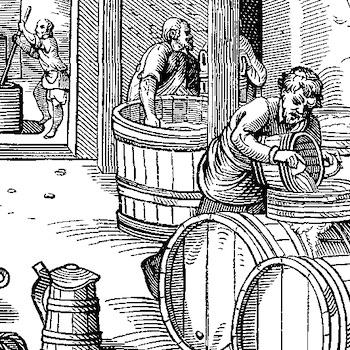"Beer is proof that God loves us and wants us to be happy." That quote, wrongly attributed to Benjamin Franklin, could still be true, but not for the reason most of us would think.
Scientific research suggests that it is the flavor, not the presence of alcohol, that makes beer drinkers happy. This counterintuitive finding was cited by Dr. Guido Camps at the 9th European Beer & Health Summit, an academic conference in Brussels.*
The paper to which he was referring was published recently in the journal Chemical Senses. The authors argue that the flavor of beer is a conditioned stimulus. That is, over time, our brains learn that the taste of beer is linked to the presence of alcohol. Indeed, if a person is given non-alcoholic beer, he is still likely to exhibit the same responses (e.g., increased feelings of pleasure) associated with alcohol consumption.
In this way, the flavor of beer may serve as a sort of placebo. The expectation of alcohol (similar to the expectation of medical treatment) may itself be sufficient to elicit a measurable physiological response. This led the authors to hypothesize that when participants are expecting to receive an alcoholic beverage, they will exhibit the same brain activation pattern regardless if the drink contains alcohol or not.
To test this, they recruited 21 healthy young men. Participants were given an initial cue (beer or carbonated water), and then were administered the taste test (beer, non-alcoholic beer, or carbonated water) while inside a functional MRI, which measures brain activity. (The beer and non-alcoholic beer were identical, except that the beer had 5% alcohol added to it.) The experimental design is depicted below.

The authors found no differences in brain activation due to beer and non-alcoholic beer during the tasting portion of the test. During the aftertaste portion, however, they did detect a difference (with the presence of alcohol being associated with greater activation), possibly because the back of the tongue and throat are better at sensing alcohol.
Still, the authors believe that this provides evidence that the average beer consumer is driven primarily by taste rather than alcohol. If true, this would be good news to the budding non-alcoholic beer industry.
*Full disclosure: I was invited to speak at the conference. My flight and hotel were paid by the organizers, and I received a small honorarium.




